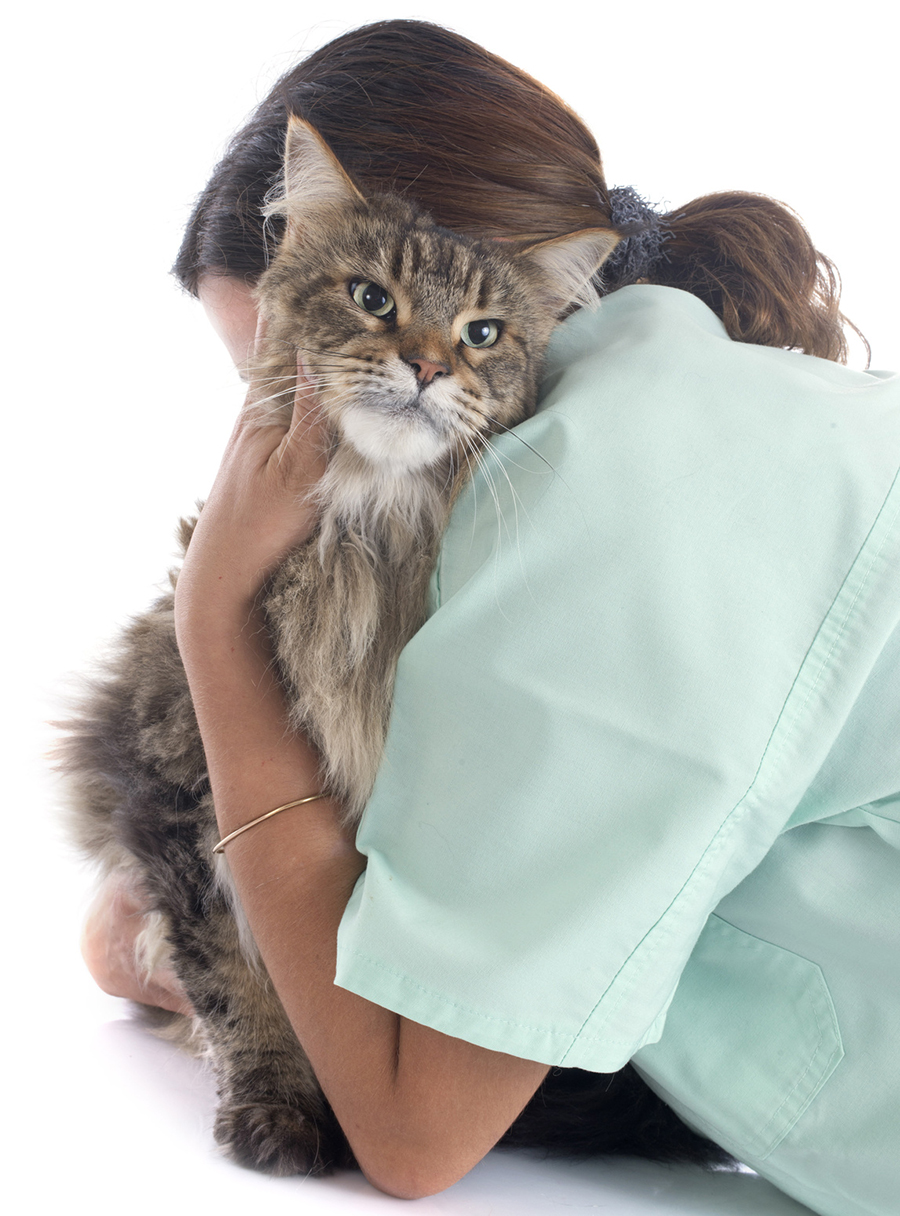Lymphoma in Cats
Lymphoma is a cancer of the lymphatic cells (a type of white blood cell). The nearest similarity in humans is Non-Hodgkin’s Lymphoma. The most common form we see in cats, affects the lymph glands of the intestines. Clinical signs normally seen are chronic vomiting or diarrhea. Other relatively common sites in cats are the external lymph glands (under the jaw/ in front of the shoulder/ behind the knee/ in the groin), kidneys and the chest. More rarer forms affect the spinal cord, the nose, the eye, the skin and other organs.
A diagnosis can be made by biopsy and further “staging” is normally indicated. Staging is the process by which we make sure the cancer has not progressed past the original diagnosed site. These procedures include blood tests/ ultrasound/ aspirates of other lymph glands or organs (spleen/ liver)/ bone marrow biopsies and x-rays of the chest.
Once the staging process is complete, we have a complete picture of the lymphoma and treatment and prognosis can be determined. Lymphoma is the most responsive cancer we see in cats and up to 90% of cases undergoing treatment experience complete remission with minimal side effects. Most treatments involve the use of a combination of chemotherapy drugs in what is called a “protocol”. Cats do not tend to experience the array or degree of side effects that humans do – they do not loose their hair and very rarely experience nausea/ vomiting. In most cases, one wouldn’t even realize your pet was going through chemotherapy. In cats, there is a chance that the whiskers can be affected and even lost.
Without treatment, most cases of lymphoma can only expect a survival of anything between 2-4 months from time of diagnosis. With treatment, however, 80% of cases will remain in remission for between 10 - 24 months. These figures are very variable in cats as the duration of response can be very variable, and is also dependent on the type of protocol used (longer times can be expected from the more advanced protocols using a wider range of drugs). Treatment can range from just palliative (where no remission is attained, but there is some relief from clinical signs), to mid range protocols, to the more advanced protocols. Protocols are generally tailored to suit budget, logistics (some require weekly visits, whilst others can be less frequent) and the individual patient.
The main aim of treatment for lymphoma is to reduce all clinical signs associated with the cancer and to have excellent quality of life whilst on treatment and during remission. Should there be a relapse of the lymphoma, either the same protocol can be used again, or in most cases, a slightly different one is used.
Costs of treatment vary tremendously and can range from $300 - $800 per chemotherapy session. With the advanced protocols, treatment usually goes on for about 4-6 months with visits initially once weekly, then decreasing to fortnightly and monthly. Patients are usually kept in for the day (drop off morning, pick up afternoon) and will have a blood count done before each treatment. The total cost of an advanced protocol usually comes in at between $5000-7000 over the 6 month period. Payment is only necessary on a per treatment basis.

Our Midland & Drovers Vet Hospitals are both accredited ISFM Cat Friendly Clinics.
The Cat Friendly Clinic programme is an internationally recognised assessment accreditation scheme which is open to any veterinary practice that cares for feline patients. There are certain requirements regarding design, equipment and facilities within the clinic, which must be met to achieve the standard. The clinic must also demonstrate that a high quality of care is provided to cats and that all staff understand cats and their needs in a clinic.
The benefit to the clinic is that not only will the scheme help to improve the clinical care of feline patients but may also increase the number of clients who are actively seeking a cat friendly clinic for their pet.




